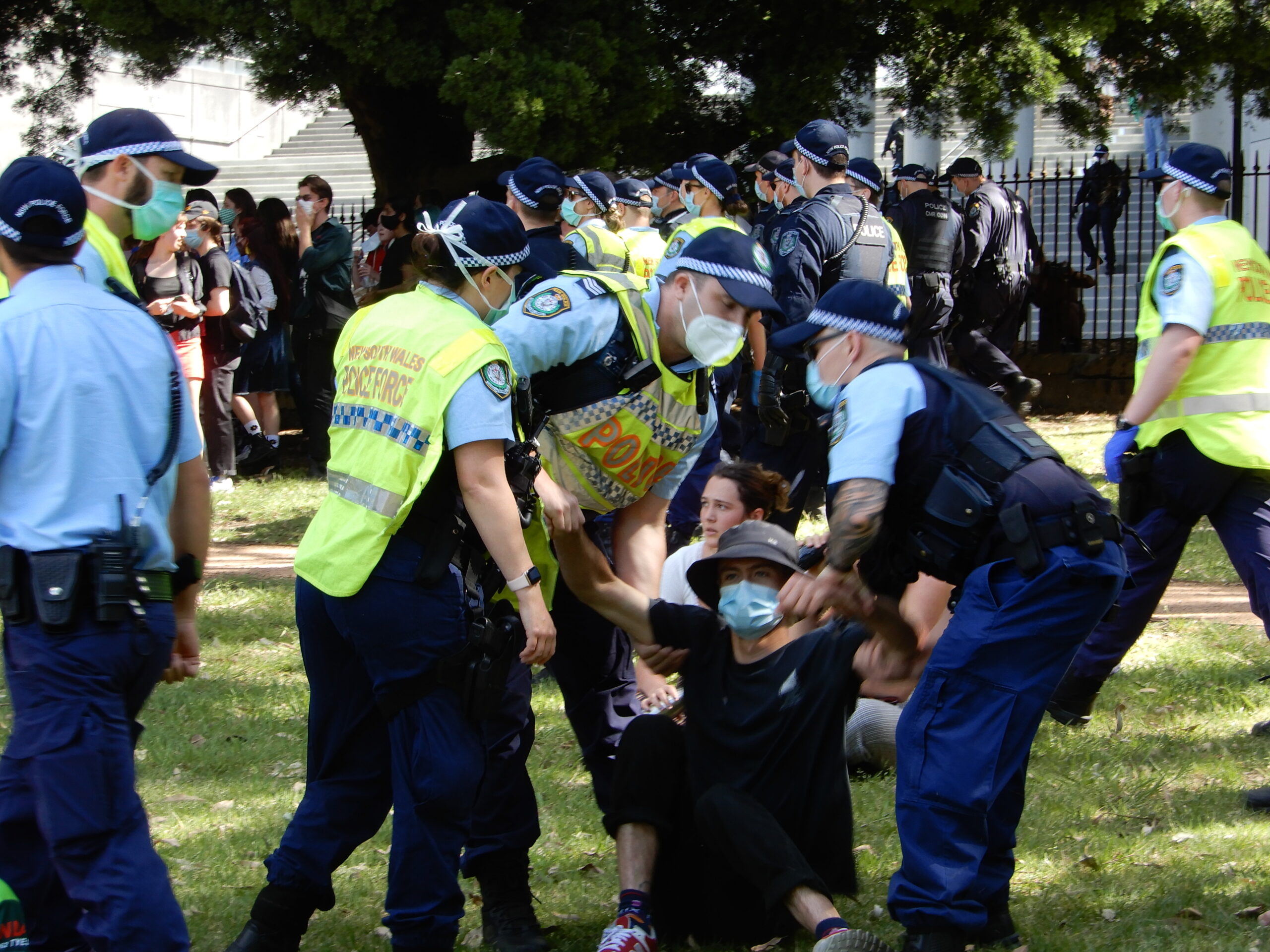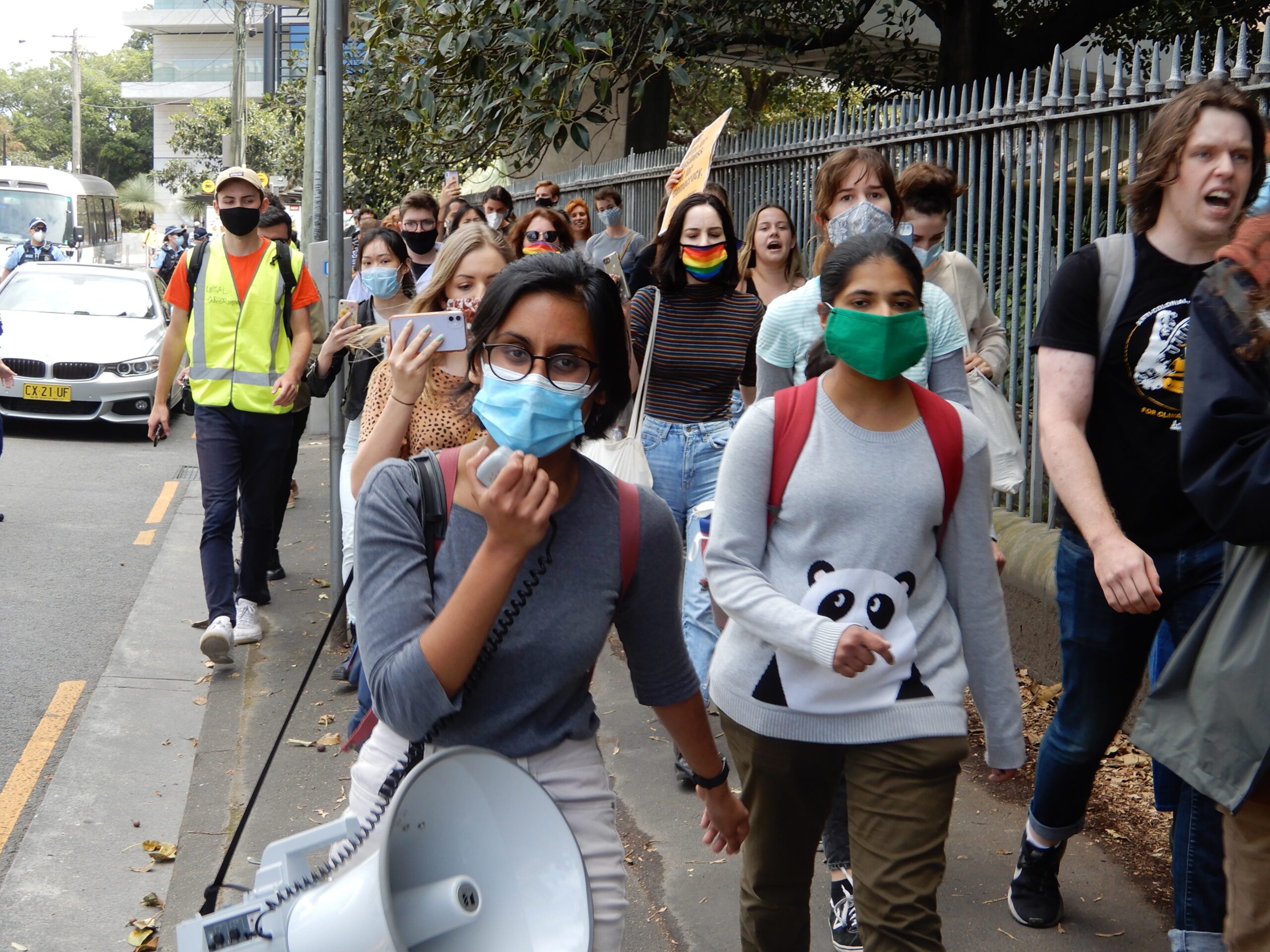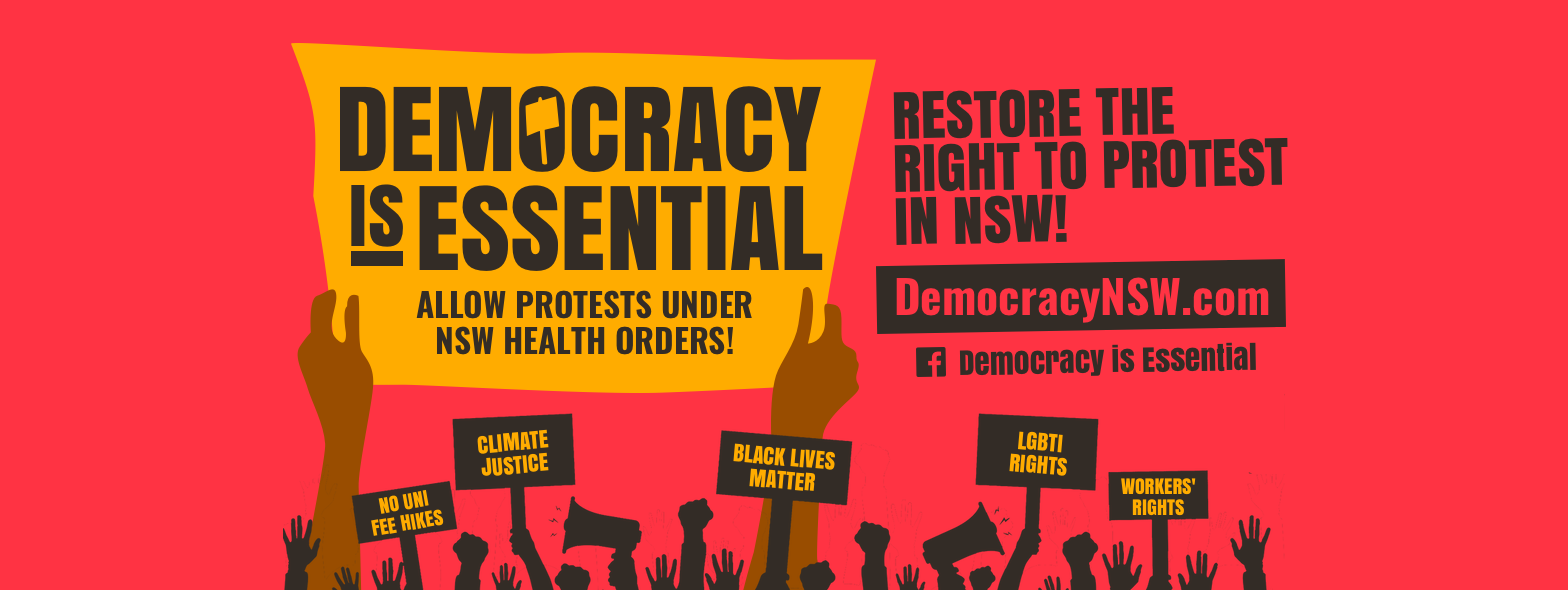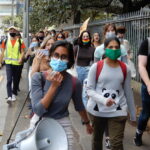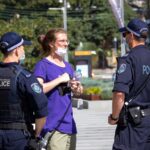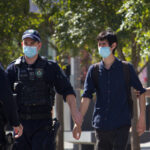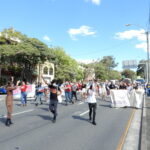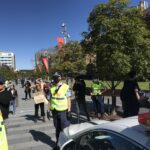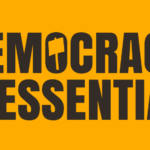Violence Against Protesters Was Unprovoked: An Interview With USYD Law Professor Simon Rice

Of late, Sydney University Law Professor Simon Rice has been running an extracurricular project, which involves overseeing some students working on reforming protest laws.
Indeed, over recent years, state laws have been gradually encroaching upon the right to demonstrate.
So, as there was an on campus USYD student rally organised for 14 October, the professor suggested his students with a focus on protest accompany him to observe the demonstration as part of their research.
With the support of the National Tertiary Education Union (NTEU), students were mobilising in response to the Morrison government’s passing of the Job-Ready Bill, which undermines the pursuit of critical thought at Australian universities, whilst hiking the cost of higher education overall.
But despite the suited professor’s appearance clearly distinguishing him from the student protesters, officers pushed him to the ground, arrested, took him into custody and fined him. Footage later emerged, which shows the aggressive treatment he was subjected to.
Unjustifiable enforcement
Professor Rice was not the only protester who was met with excessive force. A number of students who moved onto the road were picked up by officers and tossed quite heavy-handedly onto the footpath. Others were placed in wristlocks. Injuries were sustained.
Whilst it was shocking to observe NSW police officers being so rough with the young students participating in the nonviolent action, it was not totally unexpected, as Sydney Uni has become ground zero in the struggle to reinstate the right to protest over recent months.
In late July, a fairly small COVID safe student and staff rally was met by NSW police enforcing an unofficial state ban on demonstrating. So, students regrouped and organised another event within the permissible pandemic limits, but, again, police moved in and shut it down.
So, students have continued to exercise their democratic right to protest in a manner, which, while peaceful, perhaps steps outside of the parameters of the unofficial and arbitrarily enforced COVID ban. And this has only transpired since they were stamped upon when organising with the limits.
The unofficial ban
Section 22 of the Public Health (COVID-19 Restrictions on Gathering and Movement) Order (No 5) 2020 prohibits participation in an outdoor public gathering – “a meeting or assembly of persons for a com mon purpose” – of more than 20 people.
This is currently being enforced against certain public political demonstrations, but by no means all.
Meanwhile, just days after the authorities moved to shut down a couple of hundred students marching in and around a university, the government permitted pandemic restrictions to be lifted to allow 11,000 people to attend a spring racing carnival at Randwick Racecourse.
Sydney Criminal Lawyers spoke to USYD Kim Santow Chair of Law and Social Justice Professor Simon Rice about the disconnect between restrictions on protest and permitted gatherings in this state, his treatment during the student rally and the changes he believes it indicates are necessary.
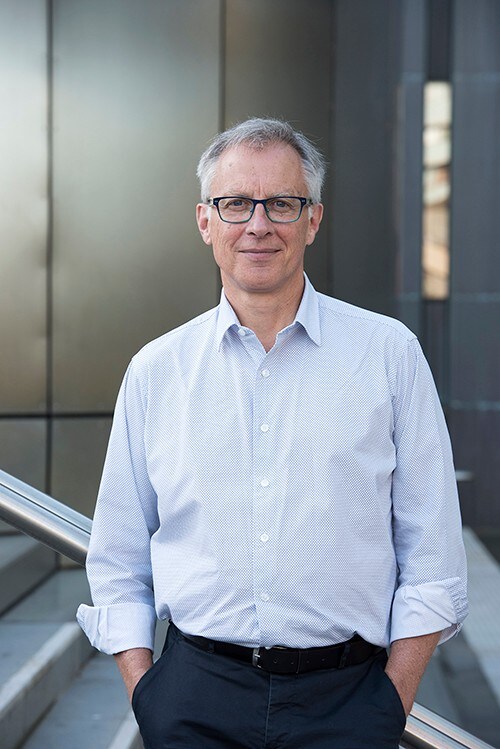
Firstly, last week, you attended a student protest that took place at Sydney University, where you lecture in law. And you ended up getting arrested and slapped with a $1,000 COVID fine.
Professor Rice, you were attending the protest as an observer. Indeed, in appearance, you didn’t look to be part of the demonstration. So, how did you manage to fall short of the law?
I was observing it. I was following the protest from a distance, as were the police. I was closer to the police than the students all the way.
The students walked themselves into a bit of a dead end. They hit an intersection coming out of the campus and onto the main road.
At that stage, I had a choice of going back and leaving them or getting through to the other side, so I could go up the hill, which is where I thought they would go.
As I was making my way through the students, the timing was bad, as at that moment – without any warning that I was aware of – the police quickly and aggressively moved in.
So, I was in the crowd that they moved into.
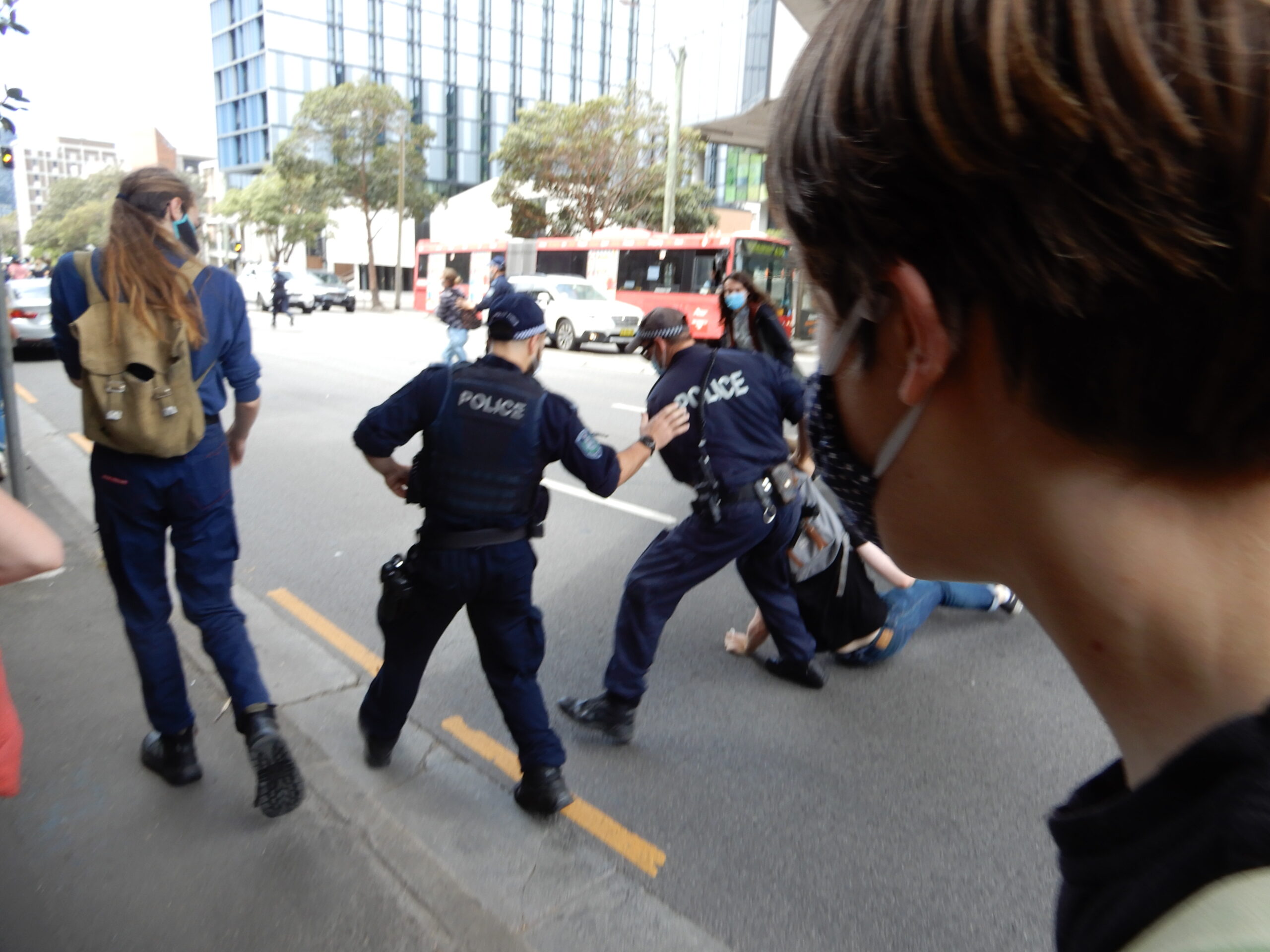
I attended the protest and witnessed a few students being picked up off the street and tossed onto the sidewalk. I’ve also seen the footage of your quite physical arrest.
Can you explain how you were handled by police?
As I was making my way through the students to get out the other side, I saw the police officers move in.
I saw a police officer pulling a megaphone out of a student’s hand, and I said, “Why are you doing that?” The officer said, “I’m not answering you.”
I then turned and saw it happening to another student. Again, as I was saying, “why are you doing that”, I was grabbed from behind and forcibly marched away onto the road and over to a corner.
I couldn’t see who was pushing me. And I turned to ask, “What are you doing?”. As I turned, I heard somebody say, “You’re resisting arrest.” They then kicked my legs out from underneath me, and I fell to my hands and knees.
I turned over and instinctively went to get up. They pushed me back down and told me I was under arrest. That was the physical encounter.
As you saw, and as people might know, many students were treated much worse than that, and were physically injured.
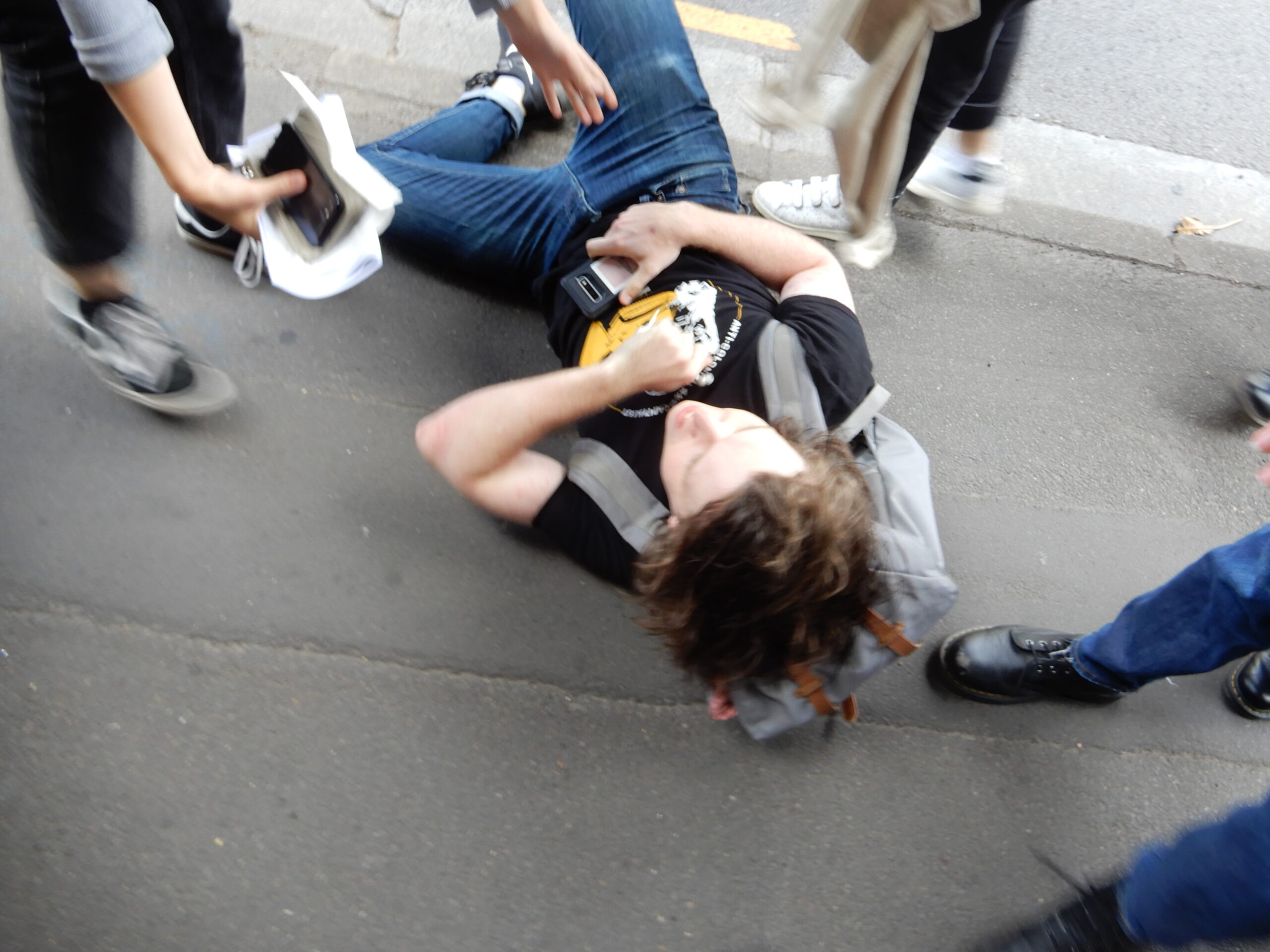
So, in your opinion, why was such force being used?
Nothing I saw explained it. No student was doing more than chanting slogans and waving banners. It was peaceful.
There was nothing that provoked violence. And there was nothing that provoked the police line moving in on the students.
I respect the fact that the police may have been there to stop the students moving onto the road. But what I saw and experienced was the police moving into the students on the footpath.
It was inexplicable. There was nothing in the moment that explained it. So, it makes you wonder whether the police were acting on general instruction or direction or had a sense that they were entitled to do what they want.
That question has to be asked higher up.
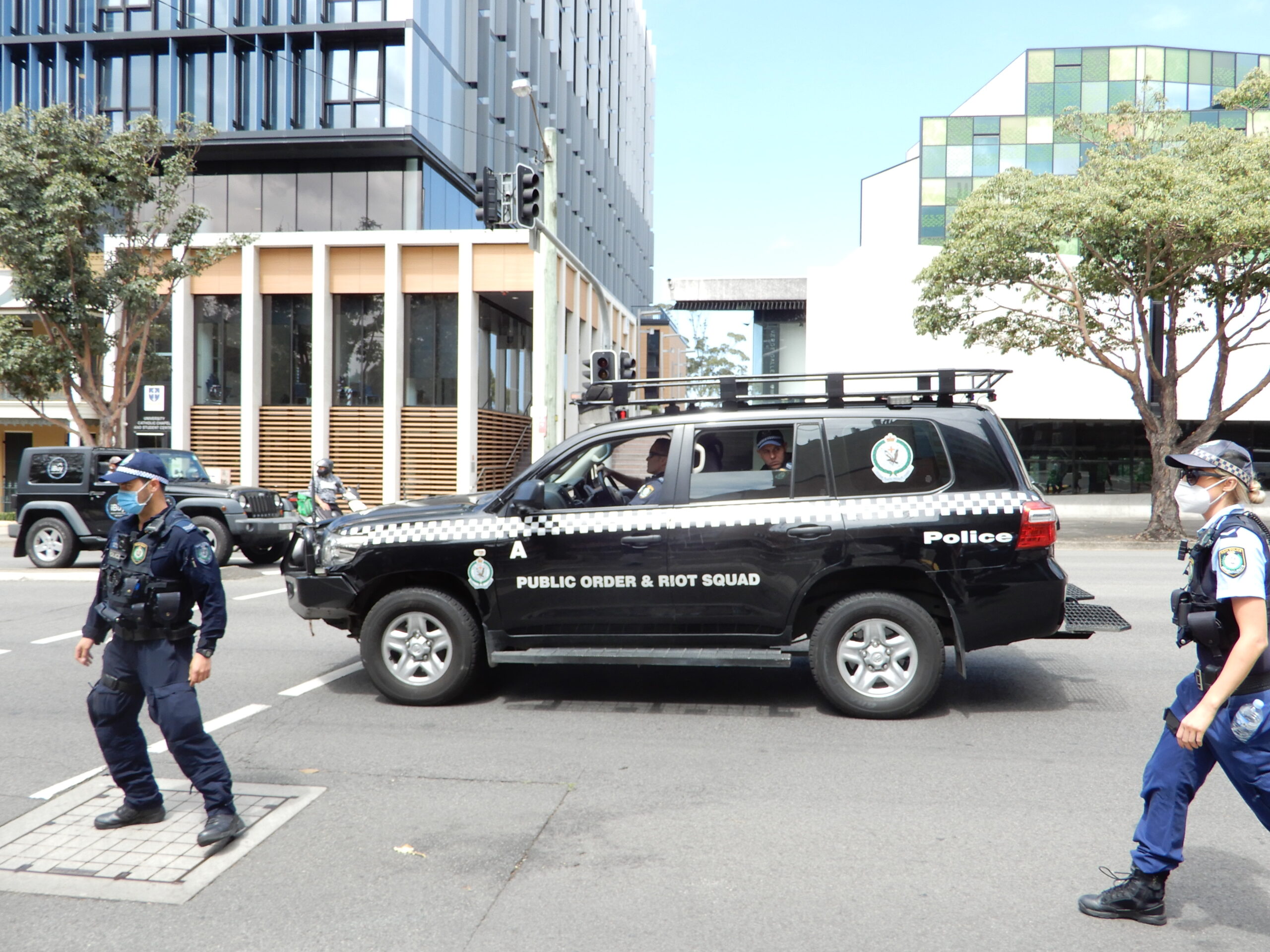
You’ve stated that there are problems in terms of the way the police are enforcing the unofficial protest ban on demonstrations of more than 20 people, and as well there’s a disconnect with what else is currently allowed to take place in this state as we come out of lockdown.
Can you expand on this?
The public health order is very clear. It prevents gatherings of over 20 people, but then it has a long list – a list that amounts to a couple of pages – of exceptions.
The exceptions are very detailed, quite specific and relate to a wide range of activities in public life. And anyone looking at that list would think it’s not inconsistent to have on it provisions for protest.
It’s simply missing from an otherwise very extensive list of exclusions that allow people to go about their civil life. The one thing that’s glaringly absent is the right to democratically express an opinion in public.
So, the state has a real problem with the consistency of the message it’s sending out.
Then behind that, there’s a real problem with some underpinning values: what it sees are worth making safe exceptions for, and what it isn’t concerned about making safe exceptions for.
While it’s boosting the economy, it’s suppressing people’s voices.
In an opinion piece you wrote in the Herald following the protest, you suggested that you were a “privileged arrestee” with resources you could call on, but not everyone in our society is in such a position.
What sort of impact do you think having police operating in this manner is having on the more disadvantaged sectors of society?
I can see from my engagement with students, and my subsequent talking to a lot of representative groups, two very clear consequences.
One is real anger and resentment, with a loss of respect for the authority of the state, which is the opposite of what the state wants to achieve.
And a degree of apprehension. A real chilling effect. There are quite understandably people who simply don’t want to run the risk of assault and arrest and fine for expressing a democratic opinion.
So, I see both resentment and fear.
You didn’t attend the protest alone. You’d suggested to some of your students who are undertaking research on reforming protest laws to attend as well.
Many have been warning that the laws to suppress protests and public assemblies in this state have been mounting over recent years.
Besides the current COVID ban, how would you assess NSW laws in terms of demonstrating and freedom of speech?
There are two parts to that. The written laws are getting harsher, along with in Queensland and Tasmania.
New laws have increased penalties and decreased opportunities for public speech in NSW. The Right to Farm Act is an example. It responded to animal rights activists by dramatically increasing penalties.
So, the written law is harsher.
Then we have what we call the unwritten law. Laws don’t self-execute. Laws happen when people give effect to them.
So, what we have to look at in this case is the way the police are giving effect to the powers they have. And they have quite a bit of discretion to how far they go when they act.
Our observation is the police are increasingly willing to act harshly and to exercise discretion against what latitude there is to speak freely.
You spoke at the Police and Protest public forum. It was organised by Democracy Is Essential, which is a campaign calling on the state government to reinstate the right to protest.
Last week’s protest wasn’t the first Sydney Uni protest over recent months that’s been met with saturation policing. But the students have continued to push ahead with their actions.
What’s your opinion of the protest movement that’s been centred at Sydney University over the last couple of months?
The protest movement has been unfailingly peaceful and nonviolent. Emotions are high. People are angry about the federal government tertiary education measures – that’s what’s prompting it.
There is a real feeling that the federal government is devaluing tertiary education and manipulating it towards vocational outcomes at the expense of intellectual inquiry.
So, there’s very strong feelings.
Impressively, the really strong feelings of staff, the NTEU, the students and the student bodies has manifested only in nonviolent protest: in expressing views strongly and loudly, but peacefully and safely.
That is my impression, and I don’t see that changing. What may change is that fewer people are prepared to run the risk of encountering the police in engaging in protests.
And lastly, Professor Rice, following the incident, you also remarked that your arrest has perhaps woken up others in positions like yours to something being amiss.
Obviously, your first hand experience must have made quite a different impression than observing such issues from a research perspective.
Given the fact that while your arrest was an anomaly in one way, in other ways, it’s something that’s going on all the time, what would you suggest needs to change?
The behaviour needs to change. And that change will come with cultural change. We know that in any organisation that comes from, if not the top, then very high up.
Decisions are being made, directions are being given, licence is being given for frontline police to act in a certain way.
Police would not engage in conduct if they thought they were stepping out of line themselves, and that there were adverse consequences for them.
We have to infer that the way they are acting is a way that they feel they are permitted, if not encouraged, to act.
There needs to be change higher up that ensures that the frontline police are seeking – and they’re not seeking at all – a balance between public safety and the right to freedom of expression.
